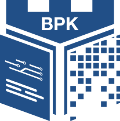Publishing - selected aspects
Copyright
Copyright law protects and safeguards the property and non-property interests of authors/creators. The subject of protection is a work. The most important Polish legal act protecting the author's work is the Act of February 4, 1994 on Copyright and Related Rights (in Polish only). (new window) The act introduces a definition of copyright and specifies what can constitute the subject matter of copyright, what is not covered by copyright (e.g. ideas, concepts, normative acts), and what rights can be exercised by the creator of the work. The law has undergone numerous amendments. Poland has entered into international obligations regarding copyright law and adopted the entire acquis communautaire after joining the European Union in 2004.
Copyright protection is also regulated by other laws, such as the Civil Code, the Press Law, the Law on Databases, the Law on Personal Data Protection, the Law on Combating Unfair Competition, the Law on Broadcasting.
- Copyright - an infographic (new window)
- Visual Thinking - Infographic Data Sources (new window)
- Copyright and related rights (new window)
- Copyright Guide (PDF) (new window)
- Intellectual property - copyright and industrial law (new window)
How to choose an appropriate journal or publishing house for publishing your paper – useful tips
- Check the scoring of scientific journals and publishers on the Ministry of Science and Higher Education lists – The current list of scored journals, conferences and publications of the Ministry of Science and Higher Education (new window).
- Find out where researchers in your field are publishing – see the CUT Academics Bibliography (new window) (BPP PK) – Knowledge Platform of the Cracow University of Technology (new window), multidisciplinary databases, e.g. BazTech (new window), Scopus, WoS, or subject field databases, e.g. available from the CUT website.
- Read tips on how to choose a good journal to publish a scientific article or a publishing house to a scientific monograph – Think Check Submit. (new window)
- Use tools that suggest titles of journals that match the subject of your article.
After entering the title and abstract or keywords about your article on the pages of such tools, you will receive a list of suggested journals in which you can potentially publish it (best subject match). Depending on the tool, the lists may include: bibliometric indicators of the quality of the journal, information about the review policy, average waiting time for review and publication, acceptance rate of articles, etc. The various tools search different resources, for example:
- Elsevier Journal Finder (new window) – Elsevier Publishing House with journals in a variety of fields;
- Web of Science Match Manuscript (new window) – journals indexed in Web of Science (WoS), the free version requires logging into your WoS account;
- Springer Journal Suggester (new window) – Springer Nature Group journals;
- Journal/Author Name Estimator (Jane) (new window) – journals indexed in the PubMed database; may include publications from so-called predatory publishers, so Jane marks journals from PubMed also indexed in the MEDLINE database and OA journals approved by the Directory of Open Access Journal (DOAJ);
- Trinka (new window) – journals retrieved by AI. Login required.
Publication ethics and review procedures
- Committee on Publication Ethics (COPE) (new window) – educating and supporting people involved in scholarly publishing; striving to change the culture of publishing to one in which ethical practices become a normal part of that culture; promoting professional debate on publishing ethics.
- Good practices in review procedures in science (new window) – recommendations for the reliable conduct of review procedures in science by institutions conducting scientific research or supporting science, and recommendations to be followed by reviewers.
Publication funding
Publications can be financed from the following sources:
- from funds allocated for scientific activities, grants and scientific projects – see for example: Grants and mobility of scientists at CUT Library website;
- from other funds allocated to science, e.g., the cost of a publication produced in connection with the author's participation in the conference may be covered by funds raised from sponsors and contributions from conference participants;
- from the author's own funds.
More information about funding of scientific publications, see funding programmes for scientific publications affiliated to the CUT.


